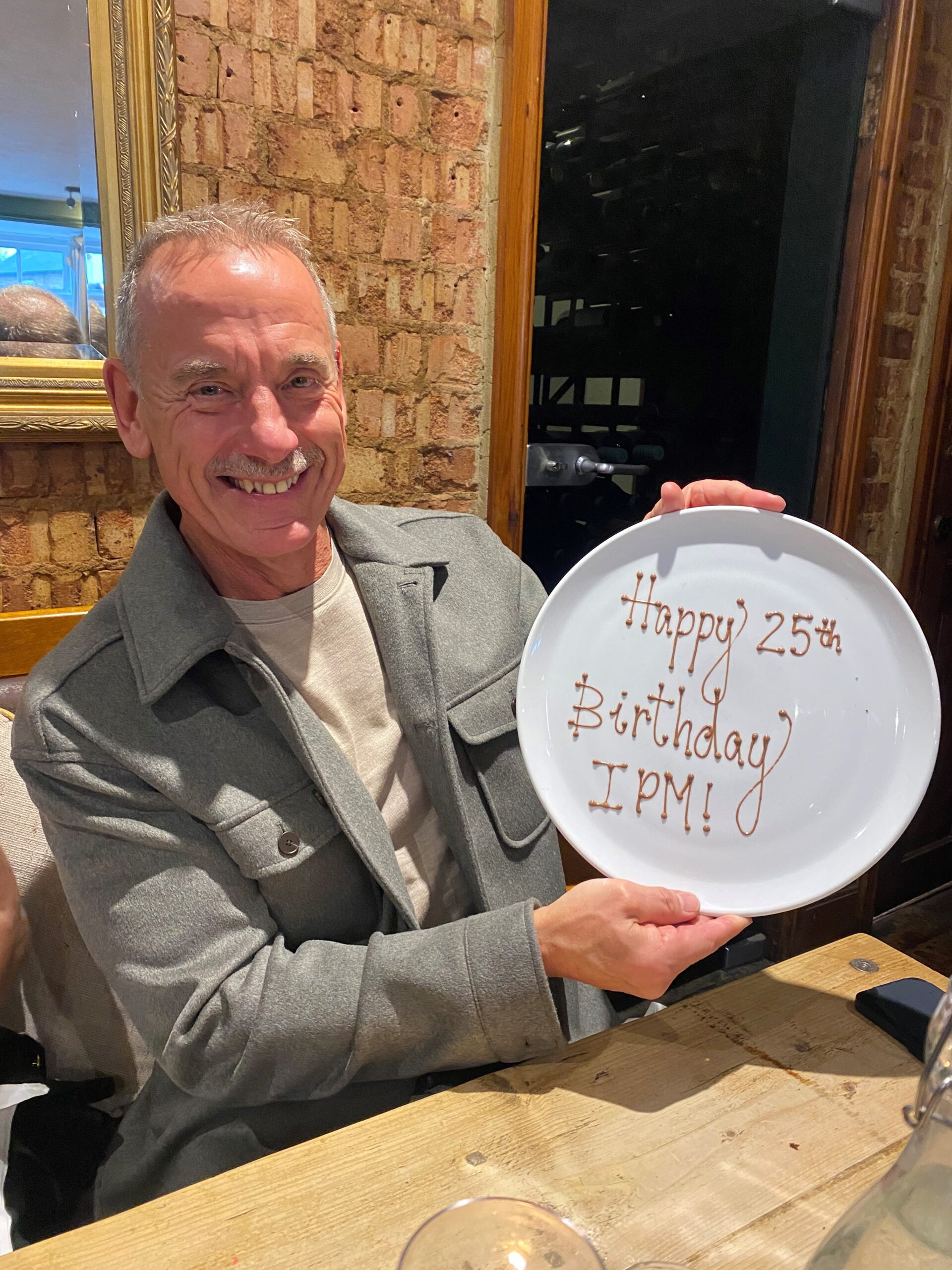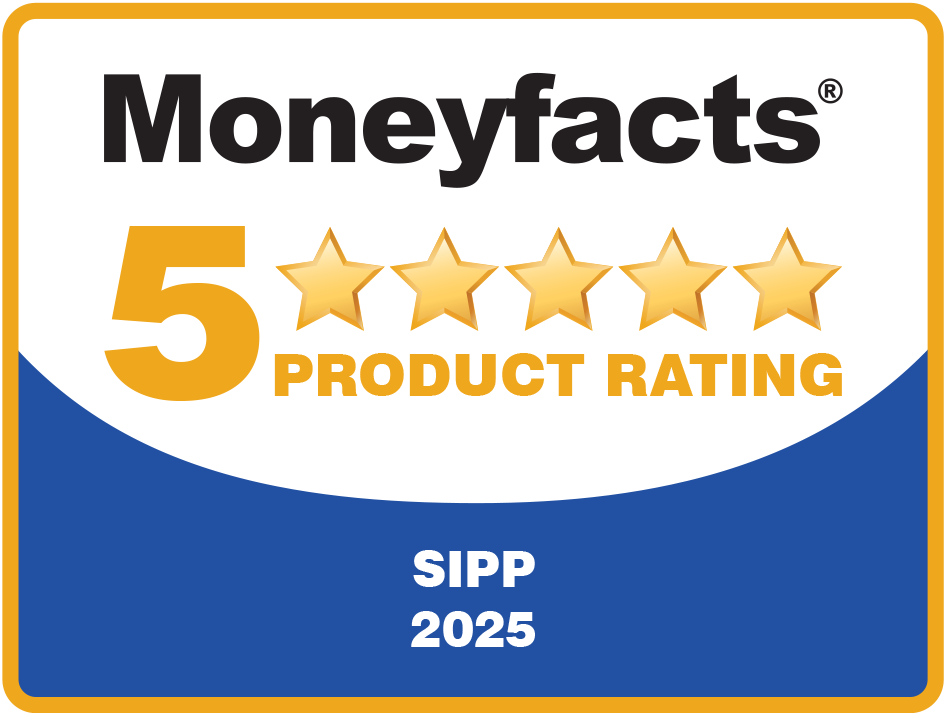IPM is 25 years old – here’s a celebration and a look back at life in 1999
Back in 1999, the iPod was in development, Rishi Sunak was studying PPE at university, and Wikipedia had yet to go online.
It was also the year that we established IPM SIPP Administration Limited. In November 1999, we began trading with just five staff members, looking after 300 SIPP members from serviced offices in Ware, Hertfordshire.
So, as we celebrate our 25th birthday, here’s a look back at a quarter of a century of IPM – alongside a light-hearted view of what else was making headlines in late 1999.
From a team of five to more than £3 billion of assets under administration
David Sutcliffe, our MD, set up IPM 25 years ago – and much has changed in that time.

David recalls the early days of launching a new SIPP business. “It was a steep learning curve; not the administration of SIPPs, but the associated requirements of running all aspects of a business that, in a larger organisation, had previously been provided by ‘central services’.
“Our first office was 30 square meters, housing the staff and all files and equipment. Within a year we had outgrown the space and took a new office within the same building, triple the size. A couple of years later, we had doubled this.
“In 2003, we moved offices to Cintel House, still based in Ware, and finally bought our own building in Stevenage in 2010, from where we still operate.”
Over the last 25 years, IPM has gone from strength to strength, growing to a staff of more than 30 today. We now look after almost 5,000 clients with more than £3 billion of assets under administration. We also own more than 1,100 commercial properties on behalf of our clients.
David cites excellent recruitment as critical to IPM’s success. “It’s fair to say that the continuity of staff has been key to the development of the business from day one, with staff turnover being almost non-existent throughout our 20 years of trading.
“At the end of our first 25 years, we have seven staff who have spent more than 20 years at IPM, and 23 who have been with IPM for at least a decade.
“The colleagues I have managed to surround myself with is the achievement of which I am most proud. Not only are they diligent and hard-working, but they are cohesive and supportive of one another.
“Without question, the success of IPM is attributable to the makeup of its employees.”
A high-quality, consistent service
Over a quarter of a century in business, the IPM philosophy has always been the same: to provide a high-quality, efficient and timely service for a fixed fee (wherever possible) and to work in conjunction with professional advisers and their clients.
David says: “Our consistency is key, both in the level of service we provide and those staff providing it.
“We constantly strive to improve what we do and resist the temptation to enter into arrangements with other businesses, or to sell our offering on the cheap to swell numbers quickly. Instead, we have maintained steady growth with the emphasis on service.”
Regulatory developments have been the biggest challenges over 25 years
Considering the huge changes in the financial services sector since Tony Blair was in power, it’s perhaps no surprise that regulatory developments have been among the biggest challenges we have faced during our 25 years in business.
“Undoubtedly, the most significant event over the past 25 years was the introduction of A-Day in April 2006”, says David. “It was the point at which pensions would become simple to understand and administer, although the reality is that we probably see more complexity than ever before.
“In the early years, SIPPs were very much a niche product for the benefit of the investor who wanted to control their own pension investments but was unable to establish a SSAS. Over time, the popularity of SIPPs surpassed that of the SSAS and opened an opportunity for self-investment to a much wider audience.
“FCA regulation has had a huge impact on the industry and on the whole is something that we support. Regulation has had a far-reaching effect on not only how SIPPs are administered but also how SIPP operators run their businesses.”
Last two decades passed “in the blink of an eye”
Reflecting on the growth of the company, David says he has “personally loved” his time at IPM.
“The past 25 years have passed like the blink of an eye and if I’d been asked to predict the future at our inception, the reality is that I wouldn’t have had a clue where it was going to be in 25 years’ time.
“Some of our competitors have grown much more quickly than we have, some have been swallowed up and some have failed. I’m very pleased that we have followed our own path of steady growth, providing a quality service for a fair and reasonable fee.”
Robbie Williams, the minimum wage, and The Sixth Sense – here’s the news from November 1999
On the occasion of our 25th birthday, we thought we’d head back to November 1999 to take a look at how the world was different a quarter of a century ago.
On 15 November 1999, the FTSE 100 closed up 22 points at 6,533.6. The Bank of England increased the base rate in early November to 5.5%, while inflation sat at a rate of just 1.2%.
The minimum wage, which had been introduced just seven months earlier, stood at £3.60 per hour for workers aged 22 or over while the average house price in the UK was £82,504.
In pension news, SIPPs were one of the hottest properties in 1999. While SIPPs had been around since the early 1990s, the Daily Telegraph reported that, in 1999 alone, savers invested a total of £10 billion in 500,000 SIPPs – twice as many schemes as were in force the previous year.
On the back page, England celebrated qualification for Euro 2000 with a 2-1 aggregate win over Scotland in the play-offs, notable for being the first live webcast of an international football match.
The fourth Rugby World Cup came to a conclusion in November 1999 at the Millennium Stadium in Cardiff with Matt Burke kicking 25 points in Australia’s comfortable 35-12 victory over France.
At the cinema, three films – all classics of their genre – topped the British box office in November 1999.
Made for just $60,000, sleeper hit The Blair Witch Project grossed almost $250 million worldwide, making it one of the most profitable films in cinema history.
Following The Blair Witch Project’s run at the box office came another word-of-mouth hit: The Sixth Sense. Director M Night Shyamalan’s tale of a young boy who “sees dead people” contains one of the most celebrated twists in movie history and went on to be nominated for six Academy Awards.
In late November it was the 19th film in the long-running James Bond series that topped the box office charts. The World Is Not Enough, Pierce Brosnan’s third outing as 007, saw the spy on a mission to investigate the daughter of a wealthy British businessman and her attempts to inflate petroleum prices by triggering a nuclear meltdown in Istanbul.
In music, Robbie Williams, Geri Halliwell, and Will Smith were in the top five in the pop charts, while Saturday night TV offered a choice between Casualty on BBC1, and the big new hit quiz show Who Wants To Be A Millionaire? on ITV.
Get in touch
If you’d like to find out how we can help your clients with their SIPP needs, please get in touch.
Email info@ipm-pensions.co.uk or call 01438 747151.



